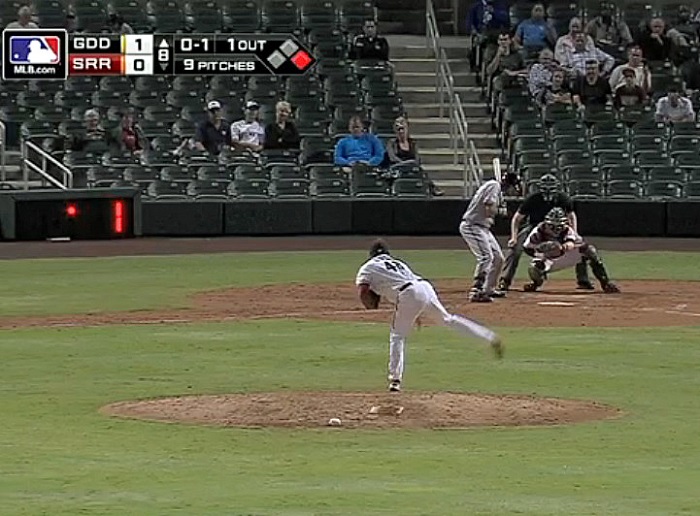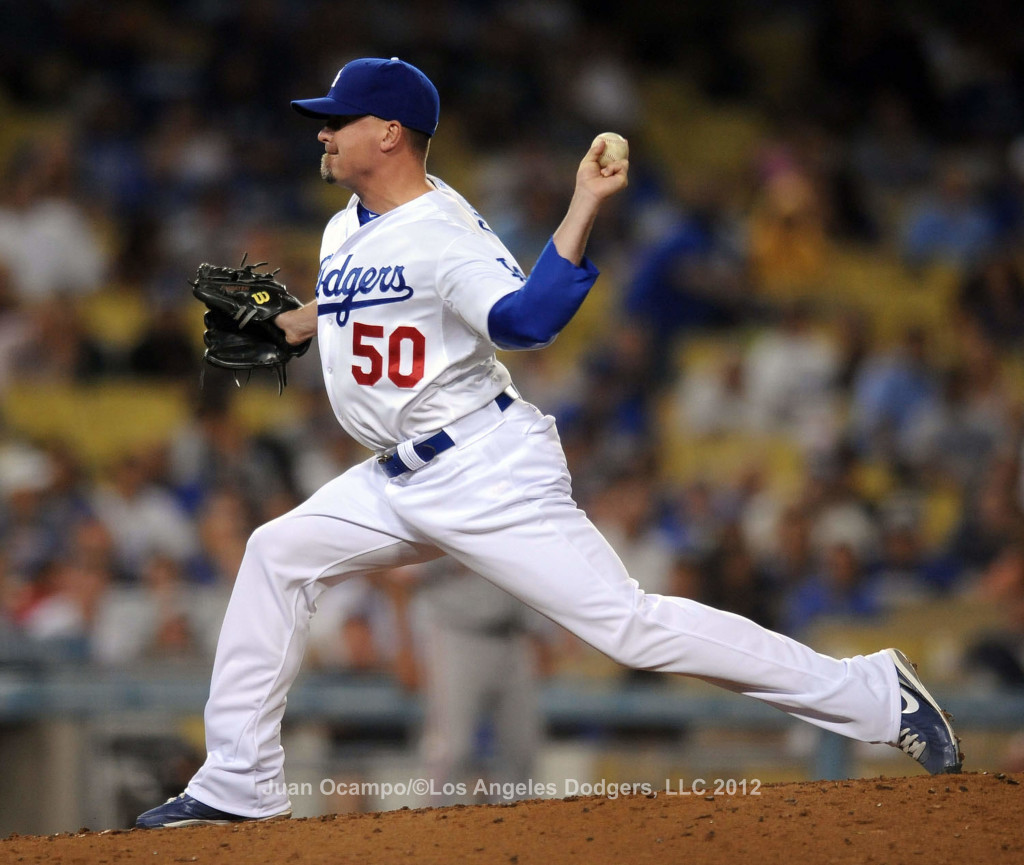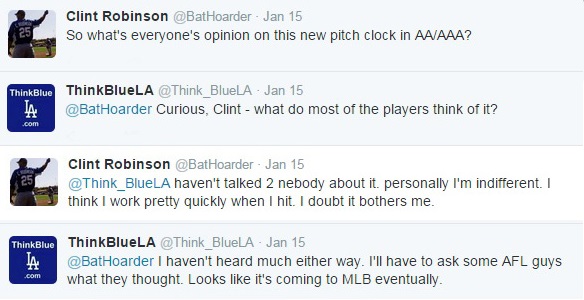Imagine it’s Game-7 of the 2016 World Series between the Dodgers and the Yankees. It’s the bottom of the ninth and every one of the 50,291 in attendance at Yankee Stadium are on their feet, most appear to be praying – and with good cause; the Dodgers are clinging to a precarious 1-0 lead (Kershaw started, of course).
After two quick strike outs, Dodgers closer Kenley Jansen gives up back-to-back singles to Brian McCann and Chase Headley. With runners at the corners and two outs, Dodgers manager Don Mattingly elects to to intentionally walk the blazing hot Jacoby Ellsbury to load the bases; he’d rather take his chances with Mark Teixeira, who is 0 for 3 on the night with three of Kershaw’s 12 strikeouts.
Although the tension at Yankee Stadium is intense, it is nothing like the tension of Dodger fans back home in L.A.; tension of the likes they haven’t felt in a very long time – 28 years ago to be exact. After all, their Dodgers are exactly one out away from their first World Series title since Orel Hershiser’s clinching Game-5 win over the highly favored Oakland A’s in 1988.
Teixeira, who once broke up a perfect game being thrown by former Dodger (and Yankee) Hiroki Kuroda and who has always hit the Dodgers well, fouls off Jansen’s first two 97-MPH fastballs. But suddenly Kenley seems to have lost the strike zone with three consecutive balls that are a fraction too far outside for home plate umpire Angel Hernandez’s liking.
Jansen is obviously flustered and furious with Hernandez, but then, who isn’t? After visits to the mound by Dodgers catcher A.J. Ellis and pitching coach Rick Honeycutt, Jansen is finally ready. But at the last second he steps off the mound to take a deep breath before making what will be the single most important pitch of his entire life.
Jansen comes set. But just as he is about to make his crucial 3-2 pitch, Angel Hernandez throws his hands in the air and calls time out. He then instructs Teixeira to take first base on an automatic ball four because the pitch clock had expired. The Dodgers do not win because of a technicality due to MLB’s decision to utilize pitch clocks in the major leagues for the first time in its 148-year history.
* * * * * * * *
Obviously this fiction and nothing more than a figment of my imagination – except for one thing. By 2016 there very well could be pitch clocks used at baseball’s highest level, thus making this scenario – or something like it – a very distinct possibility.
The whole pitch clock idea is predicated on the belief that baseball games have become inherently too long and that by increasing the ‘pace of game’ (as it is referred to), interest in the game will improve. Okay, I’ll bite – exactly how do you improve on a game that generated an all-time record $9 billion in revenue and saw attendance jump at nearly every MLB ballpark in 2014? I’m not exactly sure what it is, but I seem to be missing something here. Granted, there is always room for improvement in just about everything, but it certainly doesn’t appear that the baseball is broken, so why fix it?

“It’s a beautiful sport. There’s no time limit, there’s no shot clock. There’s no nothing. For me, I’ve always been a big believer in the fans know what they’re getting themselves into when they show up. If it’s a three-hour game it’s a three-hour game. If it’s a five-hour game it’s a five-hour game.” – MLB pitcher Jon Lester
(Video capture courtesy of MLB.com)
There are, of course, other ideas being kicked around to improve the pace of game, ideas such as forcing the batter to keep at least one foot in the batters box at all times during his at-bat – which is apparently the anti-pitch clock remedy for which the batter can be charged an automatic strike. There is also talk of doing away with actually making pitchers pitch four balls for an intentional walk which, in my opinion, should never happen because of this:
Here’s a thought – why not eliminate or at least reduce the length of walk-up music to speed up the game a little? Or how about limiting the number of pitcher/catcher conferences per at-bat or reducing the number of time-outs granted to a batter already in the batter’s box? Or better still, how about reducing the time between innings to, say, a minute and a half instead of two minutes during the regular season and two and a half minutes during postseason games?
The answer to the last one is obvious – there is just too much television sponsor money to be made by the networks and, as we all know, baseball is all about the money.
What it all really boils down to is, is it even necessary to mess with the pace of game? It seems that baseball has gotten along just fine without it for a century and a half. Most MLB games run right around three hours – extra inning games notwithstanding. That’s about exactly how long a regular season NFL game takes – and they do have play clocks.
According to USA Today’s Ted Berg, the average length of an MLB game in 2014 was 3.13 hours, or three hours and eight minutes. But what Berg points out (using data from Baseball Prospectus) is that there has been a steady increase in average game time almost every year since 2004, when the average game time was 2.85 hours, or two hours and 51 minutes. This brings to bear the burning question: Does an increase of 17 minutes per game over the last decade justify changing the game by bringing in a pitch clock? Apparently for MLB executive vice president for baseball operations Joe Torre it does:
“There have been a number of owners that have heard complaints from their fans that the games are running too long,” said Torre, a member of the pace of games committee. “We’d like to be able to cut the game 10-15 minutes and get it around the 2:50 mark to get it a little more reasonable for people coming to the ballpark.”
But the pitching pace and the batter’s box thing aren’t the only reasons why games are longer today than they were only a decade ago; the game itself has evolved which is perhaps more responsible for longer games than any other single cause.
There is far more specialization in today’s bullpens, such as LOOGYs (Left-handed One Out Guys) and ground ball specialists, which results in more pitching changes in the middle of innings, which results in more television timeouts. Additionally, strikeout totals are higher today than in recent years which generally means higher pitch counts. In fact, the average number of pitches per plate appearance has increased to 3.8 over the past three years, up from 3.6 in the late ’80s – not a huge increase but probably good for a 10 to 12 minute increase in average game time.

LOOGY Randy Choate’s brief time with the Dodgers could almost be measured in the number of pitches he threw over the number of innings he pitched. Such is the life of today’s bullpen specialists.
(Photo credit – Jon SooHoo)
What makes this whole pitch clock thing a real head-scratcher and seemingly superfluous is that according to existing MLB Rule 8.04, there is already a pitching time limit on the books – although is clearly is never enforced:
“When the bases are unoccupied, the pitcher shall deliver the ball to the batter within 12 seconds after he receives the ball. Each time the pitcher delays the game by violating this rule, the umpire shall call Ball. The 12-second timing starts when the pitcher is in possession of the ball and the batter is in the box, alert to the pitcher. The timing stops when the pitcher releases the ball. The intent of this rule is to avoid unnecessary delays. The umpire shall insist that the catcher return the ball promptly to the pitcher, and that the pitcher take his position on the rubber promptly. Obvious delay by the pitcher should instantly be penalized by the umpire.”
What do the players themselves think of the pitch clocks, which be used at every Double-A and Triple-A ballpark in 2015? Here’s a brief Twitter exchange that I had recently with former Dodger and current Washington Nationals minor league first baseman Clint Robinson:
The thing to keep in mind is that even if MLB wants to bring the pitch clock into the major leagues, they still have to get it past the Major League Baseball Players Association (MLBPA) which, quite frankly, isn’t likely to happen anytime soon – even with MLBPA Executive Director Tony Clark on the Pace of Game committee. In fact, Former Dodger Rookie of the Year and current MLB Network Radio host Todd Hollandsworth doubts it will ever happen.
Although Hollandsworth supports enacting pace of game changes in the minor leagues so that players become accustomed to working at a quicker pace, he is not in favor of a pitch clock at the major league lever, adding that it should never be an option.
“Clocks are for other sports, baseball’s timelessness is part of its appeal,” Hollandsworth said. “It would be all about the clock, and it should be all about the players and the moment the players create. If it takes an extra second or two to create it, so be it.”




 January 19th, 2015 at 6:00 am
January 19th, 2015 at 6:00 am  by Ron Cervenka
by Ron Cervenka 
 Posted in
Posted in 

I think the speeding up of the game is for television viewing and to keep a larger audience viewing the game.
Those at the ball park are engaged in the game on different levels – watching the game and all its nuances, team loyalty, family time, eating, socializing. I doubt most fans who love the game enough to pay to go to the ball park are demanding less time for increasingly more money.
Todd is right in my opinion. Baseball is the only team sport not constrained by a clock. Time certainly adds to the appeal of those sports when a frenzy begins with very little time left on the clock but they all have a full team of moving parts whenever play is on. Every baseball play starts with a pitcher and hitter. Rushing that is most likely not the way to go.
I personally never think about time during a game. The score and the innings are the two most important things, with who’s in the game following that. Winning and losing is all that matters when it comes to an average game. My girlfriend keeps asking me “When will the game end?”. And I think “Who knows?”, really, “Who cares?”, as long as we win.
About the only thing that would happen, if the length of the game is shortened, is I’d get to bed earlier. They say sleep is good for your health. Seven hours seems to be enough for me.
Triple-A, Double-A to implement pitch clock
At last week’s Owners Meetings in Arizona, pace-of-game has been a key item on the agenda. Negotiations with the Players’ Union are ongoing, but reports indicate that a 20-second pitch clock will be used at the two upper levels of the Minor Leagues this season.
A scary scenario, indeed. But I trust that the umpires would not be unmitigated arses to call the ball in this scenario. In the playoffs, whether it’s Baseball, Football, or Basketball the officials are generally not going to let ticky-tacky calls affect the game, IMHO. Remember what happens when the peasants revolt. Torches and pitchforks.